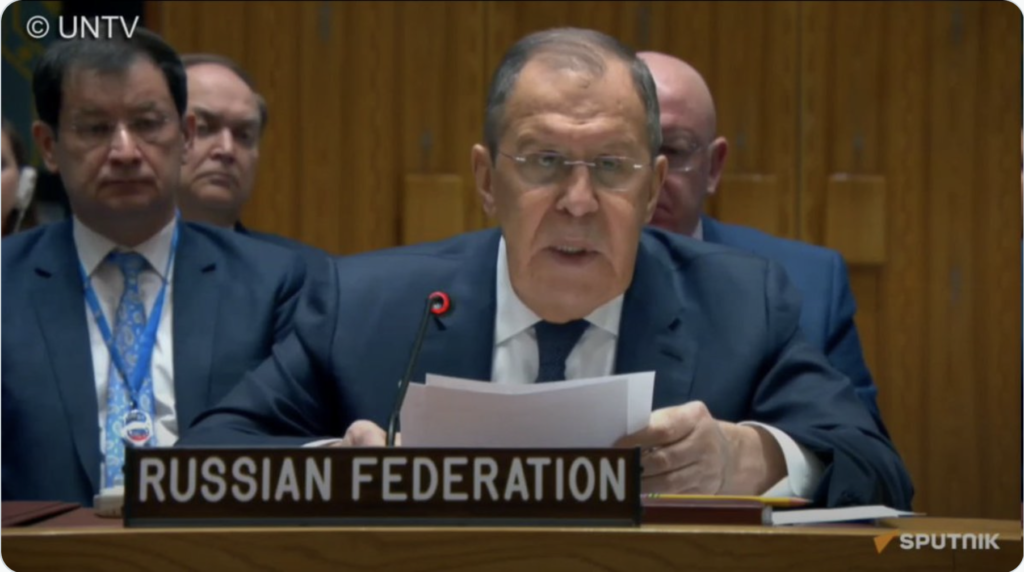Russian Foreign Minister Sergei Lavrov has recently issued a grave warning concerning escalating tensions between the United States and Russia, suggesting that both nations are perilously close to entering “direct military conflict.” In an interview published in the Turkish Hurriyet Daily, Lavrov highlighted the detrimental impact of U.S. President Joe Biden’s policies, claiming they have exacerbated a climate of Russophobia that he believes has culminated in a dangerously volatile situation. Lavrov’s remarks underscore a significant increase in hostility, emphasizing that diplomatic relations are at a critically low point, and raises alarms about the implications for global security.
When asked whether Russia has a preferred outcome for the upcoming U.S. presidential election, Lavrov denied any specific preferences, asserting that Russia views the situation as unfavorable regardless of the election result. He noted that the Trump administration had implemented the most extensive anti-Russian sanctions compared to previous administrations, suggesting that U.S. policies oscillate between different administrations without fundamentally altering the negative stance toward Russia. This portrayal indicates a skepticism by Russian officials regarding any potential thaw in U.S.-Russia relations, reflecting a consistent pattern of hostility that appears to transcend individual administrations.
Russian President Vladimir Putin’s recent comments regarding the presidential race further illustrate the Kremlin’s attitude toward U.S. politics. In a sarcastic tone, Putin referred to Biden as his “favorite,” indicating a lack of genuine support for U.S. political candidates and dismissing the complexities of electoral politics in the U.S. context. His quip about Biden recommending his supporters back Vice President Kamala Harris is reflective of a broader strategy employed by Russian leaders to undermine U.S. political integrity while simultaneously expressing disdain for American electoral processes. Such statements signal a deeper narrative being constructed by the Kremlin, one that portrays U.S. political dynamics as both chaotic and hypocritical.
This precarious political landscape, fueled by mutual distrust, raises concerns about how further militarization and aggressive posturing could play out in real terms. The situation is exacerbated by the ongoing debates within Washington about military support for Ukraine amidst its conflict with Russia, further complicating the geopolitical climate. Lavrov’s warning about a potential military encounter between the nations highlights anxieties that have become increasingly prominent, suggesting that the stakes for diplomatic resolution are higher than ever. As both nations bolster their military capabilities and preparedness, the window for de-escalation appears to narrow, making diplomatic efforts critical.
Moreover, the rhetoric from both Russian and U.S. officials indicates a willingness to engage in aggressive posturing, which may inadvertently lead to miscalculations that could trigger unintended confrontations. Diplomatic dialogue has diminished, with both sides relying heavily on military drills and strategic posturing as tools of influence. Lavrov’s comments come at a time when dialogues that typically serve as platforms for conflict resolution are becoming less frequent, raising alarms over military accidents or miscommunication leading to wider conflicts. The tension surrounding these developments showcases the fragility of international dynamics, as leaders navigate their respective domestic pressures while managing a potentially explosive international situation.
In summary, Lavrov’s remarks encapsulate the heightened tension between the United States and Russia, outlining a narrative of an inevitable conflict fueled by entrenched political attitudes and heightened military readiness. The current trajectory suggests a future fraught with uncertainty, as diplomatic channels remain stifled and both nations prepare for potential escalations. The choices made in the wake of the U.S. presidential election will be critical, but the overarching theme conveyed by Lavrov and the Kremlin is one of caution, vigilance, and a foreboding sense that the fallout from these geopolitical tensions could have disastrous consequences for global peace.

